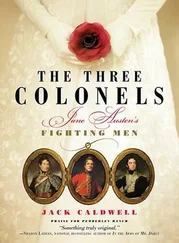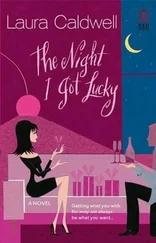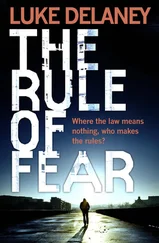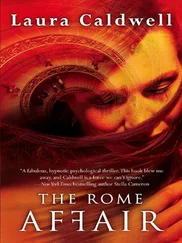Curry was quick with accusations, but Taft denied each one. The police, citing a string of local burglaries, took little interest in the disappearance of a few old books. But my father, arriving in the middle of it all, sided instantly with Curry. Both of them told Taft that they wanted nothing more to do with him; my father then explained that he had a ticket for Columbus in the morning, and that he intended not to return. He and Richard Curry spoke their farewells even as Taft looked silently on.
So ended the formative period in my father's life, the single year that set in motion all the clockwork of his future identity. Thinking back on it, I wonder if it isn't the same for all of us. Adulthood is a glacier encroaching quietly on youth. When it arrives, the stamp of childhood suddenly freezes, capturing us for good in the image of our last act, the pose we struck when the ice of age set in. The three dimensions of Patrick Sullivan, when the cold began to claim him, were husband, father, and scholar. They defined him until the end.
After the theft of the portmaster's diary, Taft vanished from the story of my father's life, only to resurface as the gadfly of his career, biting from behind the scholar's veil. Curry would not be in touch with my father for more than three years, until the occasion of my parents' wedding. The letter he wrote then was an uneasy thing, dwelling mainly in the shadow of darker days. The first few words offered his congratulations to the bride and groom; everything after was about the Hypnerotomachia .
Time passed; worlds diverged. Taft, carried by the momentum of those early years, was offered a permanent fellowship at the prestigious Institute for Advanced Study, where Einstein had worked while living near Princeton. It was an honor my father surely envied, and one that freed Taft from all the obligations of a college professor: other than agreeing to advise Bill Stein and Paul, the old bear never suffered another student or taught another class. Curry took a prominent job at Skinner's Auction House in Boston, and rose on toward professional success. In the Columbus bookshop where my father learned to walk, three new children kept him occupied enough to forget, for a while, that his experience in New York had left a permanent impression. All three men, wedged from each other by pride and circumstance, found surrogates for the Hypnerotomachia , ersatz love affairs to stand in for a quest left incomplete. The generational clock ground out another revolution, and time turned friends to strangers. Francesco Colonna, who kept the key that wound the watch, must have thought his secret safe.
Which way? I ask Paul as the library fades behind us.
Toward the art museum, he says, hunched over to keep the bundle of cloths dry.
To get there we pass Murray-Dodge, a stony blister of a building in the thick of north campus. Inside, a student theater company is performing Tom Stoppard's Arcadia, the last play Charlie had to read in English 15lw, and the first one he and I will see together. We have tickets to Sunday night's show. Bubbling over the cauldronlike walls of the stage comes the voice of Thomasina, the thirteen-year-old prodigy of the play, who reminded me of Paul the first time I read it.
If you could stop every atom in its position and direction, she is saying, and if your mind could comprehend all the actions thus suspended, then if you were really, really good at algebra you could write the formula for all the future.
Yes, stammers her tutor, who is exhausted by the engine of her mind . Yes, as far as I know, you are the first person to have thought of this.
From a distance, the front entrance to the art museum appears to be open, a small miracle on a holiday night. The museum curators are a strange lot, half of them mousy as librarians, the other half moody as artists, and I get the impression most would rather let kindergartners fingerpaint on the Monets than let an undergrad into the museum when it wasn't strictly necessary.
McCormick Hall, home of the art history department, sits slightly in front of the museum proper, the wall of its entrance paneled in glass. As we approach, security guards eye us through the fishbowl. Like one of the avant-garde exhibits Katie took me to see, which I never understood, they have all the trappings of being real, but are perfectly, silently motionless. A sign on the door says meeting of Princeton art museum trustees. In smaller letters it adds: Museum. Closed to Public . I hesitate, but Paul barges in.
Richard, he calls out into the main hall.
A handful of patrons turn to gawk, but no familiar faces. Canvases punctuate the walls of the main floor, windows of color in this dreary white house. Reconstructed Greek vases sit on waist-high pillars in a nearby room.
Richard , Paul repeats, louder now.
Curry's bald head turns on its long, thick neck. He is tall and wiry, wearing a tailored pinstripe suit with a red tie. When he sees Paul walking toward him, the man's dark eyes are all affection. Curry's wife died more than ten years ago, childless, and he now looks on Paul as his only son.
Boys, he says warmly, extending his arms, as if we are half our ages. He turns to Paul. I didn't expect to see you so soon. I thought you wouldn't be done until later. What a nice surprise. His fingers are tickling his cufflinks, his eyes full of pleasure. He reaches over to shake Paul's outstretched hand.
How have you been?
We both smile. The energy in Curry's voice belies his age, but in other ways the hounds of time are closing in. Since I last saw him, only six months ago, signs of stiffness have crept into his movements, and the faintest hollow has formed behind the flesh of his face. Richard Curry is the owner of a large auction house in New York now, and the trustee of museums much bigger than this one-but according to Paul, after the Hypnerotomachia disappeared from his life, the career that replaced it never became more than a sideline, a campaign to forget what came before. No one seemed more surprised by his success, and less impressed by it, than Curry himself.
Ah, he says now, turning as if to introduce us to someone. Have you seen the paintings?
Behind him is a canvas I've never noticed before. Looking around, I realize the art on the walls is not what's usually here.
These aren't from the university collections, Paul says.
Curry smiles. No, not at all. Each of the trustees brought something for tonight. We made a bet to see which one of us could put the most paintings on loan to the museum.
Curry, the old football player, still has a residue in his speech of wagers and gambles and gentlemen's bets.
Who won? I ask.
The art museum, he says, deflecting the question. Princeton profits when we strive.
In the silence that follows, he scans the faces of the patrons who haven't fled the great hall after our interruption.
I was going to show you this after the trustees' meeting, he says to Paul, but there's no reason not to do it now.
He gestures for us to follow him, and begins walking toward a room to the left. I glance at Paul, wondering what he means, but Paul seems not to know.
George Carter, Sr., brought these two… Curry says, showing us the artwork along the way. Two small prints by Durer sit in frames so old they have the texture of driftwood. And the Wolgemut on the far side. He points across the floor. The Philip Murrays brought those two very nice Mannerists.
Curry leads us into a second room, where late-twentieth-century art has been replaced by Impressionist paintings. The Wilson family brought four: a Bonnat, a small Manet, and two by Toulouse-Lautrec. He gives us time to study them. The Marquands added this Gauguin.
Читать дальше












